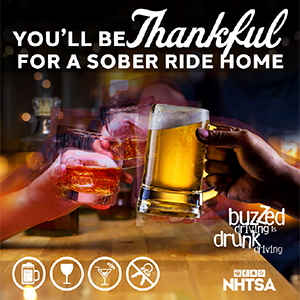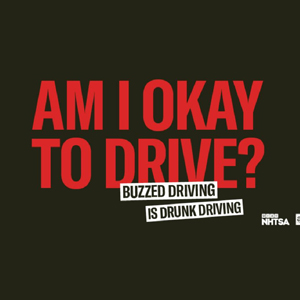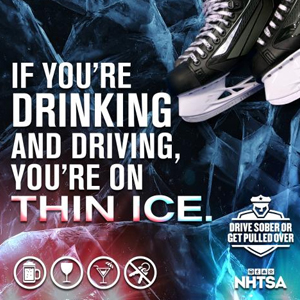Maximizing Fleet Safety: The Critical Impact of Vehicle Inspections
Ensuring safety and reducing fleet maintenance costs hinges on effective pre- and post-trip vehicle inspections. While these checks are routine, emerging evidence from driver training feedback and telematics data suggests that drivers often rush or bypass pre-trip checks. This critical lapse can jeopardize vehicle safety, increase liability, and escalate maintenance costs.
The Hidden Costs of Rushed Inspections
Pre-trip inspections are not just a regulatory requirement but a cornerstone of operational safety and vehicle performance. A thorough inspection helps drivers:
Pre-trip inspections serve as the foundation of fleet safety and operational efficiency. Here’s why they’re mission-critical:
Legal Framework and Compliance
However, data from telematics and connected systems show that many drivers fall short in conducting these inspections diligently. The checklist becomes a “tick-box” exercise, often completed in minutes rather than the allocated timeframe provided in training programs.
Post-Trip Inspections: Securing Tomorrow’s Operations
The post-trip walk-around serves as an essential follow-up to ensure:
Recommended Post-Trip Inspection Protocols:
Recommended Maintenance Communication Protocols:
According to Jerry D’Addesi, CRO at Konexial, a leading provider of innovative telematics and asset management solutions, “leveraging digital tools and telematics systems is essential for streamlining these processes. By integrating handheld devices with customized training programs, operators can efficiently log findings, submit visual evidence, and trigger maintenance workflows,” D’Addesi explains. This approach enhances accuracy, reduces administrative burdens, and ensures proactive issue resolution.He continues, emphasizing the role of visibility and technology in enhancing operational efficiency:
- 1Use of Digital Tools: Devices such as Konexial’s fleet management systems help standardize inspections. Features like real-time photo uploads and instant alerts prevent oversights.Effective fleet safety relies on both structured training and consistent execution, and technology plays a critical role in bridging this gap. Digital tools help standardize vehicle inspections, reducing the risk of oversight and improving compliance. Fleet management systemsenable real-time photo uploads and automated alerts along with forcing DVIRs, ensuring that inspections are thoroughly documented, and potential issues are addressed promptly. These features not only enhance accountability but also provide fleet managers with a clear view of compliance trends and areas for improvement.
- 2Telematics Oversight: Fleet managers can monitor inspection timeframes through connected systems to ensure compliance.Beyond digitizing inspections, telematics solutions allow fleet managers to monitor inspection timeframes and identify any delays or missed steps in the process. This oversight helps ensure that safety protocols are consistently followed across an entire fleet. Additionally, integrating inspection data with ongoing driver training creates opportunities for reinforcement, allowing companies to tailor retraining efforts based on real-world performance. By combining digital tracking with targeted coaching, fleets can build a stronger culture of safety and compliance while reducing risks on the road.
- 3Driver Training Reinforcement: Programs need periodic retraining and real-worldassessmentsto reinforce the importance of walk-around inspections.
Challenges: The Reality of Driver Compliance
Training programs, such as ADTS’ Driver Safety & Inspection Enhancement (DSIE) module, dedicate significant time to teaching proper pre- and post-trip inspection protocols. Yet, telematics data reveal that:
- 1Drivers often spend insufficient time on inspections.
- 2Key issues like tire damage, faulty lights, or fluid leaks go unnoticed.
- 3Vehicle downtime increases because minor issues become major repairs.
Incorporating technology, like handheld devices, enables real-time visibility and accountability. These tools streamline pre-check reporting, ensuring drivers take the necessary time while maintaining accurate records.
The Bottom Line: A Culture of Accountability
Creating a culture where pre- and post-trip checks are valued requires:
- 1Managerial Oversight: Monitoring compliance through systems.
- 2Driver Buy-In: Demonstrating how thorough inspections save lives and reduce vehicle downtime.
- 3Technology Adoption: Leveraging systems to track, report, and resolve issues in real time.
By addressing the gaps between training, execution, and monitoring, organizations can enhance visibility, reduce liabilities, and ensure safer roads for all.
Blackout Wednesday 2024: Understanding the Risks and Safety Measures
Blackout Wednesday, also known as Drinksgiving, refers to the night before Thanksgiving in the United States, marked by a significant increase in alcohol consumption. This surge often leads to a higher incidence of alcohol-impaired driving, making it a critical focus for road safety initiatives.
The Impact of Blackout Wednesday
- Increase in Alcohol Consumption: The night before Thanksgiving has become one of the busiest nights for bars and restaurants, with many reporting record sales. This heightened consumption correlates with a rise in alcohol-related incidents.
- Rise in Drunk Driving Incidents: Law enforcement agencies observe a notable spike in DUI arrests on Blackout Wednesday. For instance, in some cities, this night has the highest statistics for drunk driving.
Fleet drivers play a crucial role in maintaining road safety, especially on high-risk occasions like Blackout Wednesday. Here are some essential takeaways to help you navigate this busy night safely and responsibly:
Heightened Vigilance is Essential
Anticipate an increase in alcohol-impaired drivers and be prepared for erratic driving behaviors, such as sudden lane changes or slow reaction times.
Stay alert at intersections, where impaired drivers may be less likely to yield or follow traffic signals correctly.
Adjust Driving Strategies
Increase your following distance to allow extra time for unexpected maneuvers by impaired drivers.
Use defensive driving techniques, such as early scanning of the road ahead and keeping escape routes in mind in case of an emergency.
Utilize In-Vehicle Safety Technology
Make the most of in-cab safety systems like lane departure warnings, forward collision alerts, and automatic emergency braking to reduce collision risks. Ensure that dash cams are operational to capture any incidents, which can be useful for post-event analysis and liability protection.
Avoid High-Traffic Areas When Possible
Use real-time navigation apps to avoid heavily congested areas, especially near bars, restaurants, and event venues.
Plan routes that steer clear of known drinking hotspots or major nightlife districts to minimize potential risks.
Stay Informed About Local Safety Campaigns
Be aware of regional safety campaigns or designated driver initiatives that may be promoted by law enforcement, NHTSA, or ride-sharing companies. Educate yourself on special DUI checkpoints, which are often set up on Blackout Wednesday to deter and catch impaired drivers.
Take Care of Your Well-Being
Keep rested, hydrated, and focused throughout your shift. Driving fatigue combined with the added risk of impaired drivers can increase the likelihood of an accident. If possible, coordinate with your fleet manager for shift adjustments that limit driving during peak risk hours (typically between 10 PM and 3 AM).
Be a Role Model for Safe Driving
Maintain zero tolerance for alcohol consumption before or during your shift—lead by example and promote a culture of responsible driving within your fleet. Encourage other drivers to plan ahead and arrange for alternative transportation if they plan to consume alcohol during the holiday season.
By implementing these strategies, fleet drivers can minimize their risk and contribute to a safer road environment on one of the most dangerous nights of the year.
Blackout Wednesday presents significant challenges in terms of road safety due to increased alcohol consumption and impaired driving. It’s essential to plan ahead: arrange for a designated driver, utilize public transportation, or consider ride-sharing services to ensure a safe journey. Stay alert to local initiatives and promotions that may support safe travel during this period.
NHTSA’s Blackout Wednesday Alcohol-Impaired Driving Campaign
The National Highway Traffic Safety Administration (NHTSA) and the US Department of Transportation actively address the dangers associated with Blackout Wednesday through targeted campaigns, and have created several ad campaigns, fact sheets with talking points, press releases, and formatted social media texts, that can be copied, pasted, and posted. Here is a review of several of the Campaign Topics to share with employees, colleagues, friends, and family:

Thanksgiving – Impaired Driving (buzzed) November 23-30
During the Thanksgiving holiday weekend, NHTSA is working diligently to remind drivers that Buzzed Driving Is Drunk Driving. Their goal is to assist traffic safety advocates, and to educate the public on the dangers and consequences of impaired driving.

References
Reference Sheet for Key Takeaways on Blackout Wednesday

